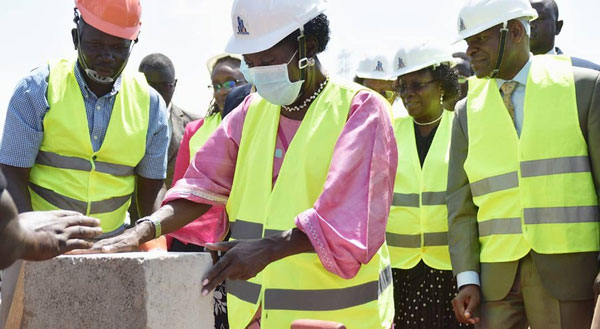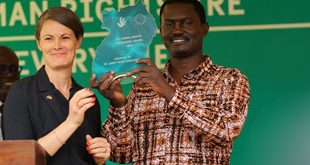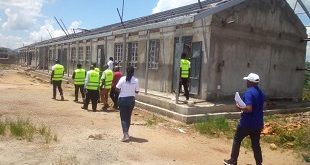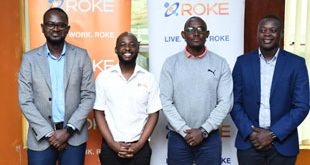
Kampala, Uganda | THE INDEPENDENT | The First Deputy Premier and Minister for East African Affairs, Rebecca Kadaga, has called on member states of the East African Community (EAC) to uphold the principles of the free movement of persons, goods, and services. Kadaga made this statement during the groundbreaking ceremony for the second phase of constructing offices for the Inter-University Council of East Africa (IUCEA), which took place on Wednesday.
Kadaga’s remarks were prompted by recent accusations between Uganda and South Sudan regarding practices that violate the spirit of the EAC. Uganda had waived visa requirements for South Sudanese citizens, but reports indicated that South Sudan continued to apply its “Aliens Registration Act” against Ugandans.
On the other hand, South Sudan complained that Uganda was charging South Sudanese students studying in Ugandan tertiary institutions a fee for a student pass. Kadaga emphasized that the EAC council of ministers had made policy directions on all matters related to EAC integration, including the free movement of persons, goods, and services.
She called for harmonized fee structures for education at tertiary institutions and urged institutions to drop any discriminatory tendencies that hindered the free movement of students, academic staff, and professionals within the region.
“Education should not be used as an opportunity to create separation among the peoples of the Community. If there are still institutions here in Uganda or elsewhere in East Africa that have such discriminatory tendencies, I strongly urge them to immediately drop it and comply with the directive,” she said.
She called for the free movement of students, academic staff, and professionals in general. She explained that discriminatory practices ran contrary to the 2010 EAC common market protocol about the free movement of persons, Labour, goods, and services, and the 2017 Dar-as-salaam declaration that made the region a common higher education area.
Ambassador Simon Deng of South Sudan promised to address Uganda’s concerns, but he reiterated that the baseline for member states should be the free movement of persons and goods.
Various speakers, including IUCEA executive secretary Prof Gaspard Banyakimbona, UCEA Executive committee vice chairman Prof John Mugisha, Permanent Secretary – Edith Mwanje, and Ms. Wanjiru Muta who represented EAC Secretary General DR Peter Mathuki commended the Ugandan government for hosting the IUCEA and donated land for its headquarters.
Despite the positive developments, Prof Banyakimbona expressed concerns about the late or delayed payment of contributions by member countries and urged the government to facilitate the recovery of IUCEA property that had been appropriated by individuals. The second phase of the construction project, expected to cost over US$8 million, will expand office space and provide necessary facilities for academia.
Prince Derrick Jjunju, speaking on behalf of the consultants, highlighted that the project aimed to showcase and celebrate local architecture and building materials while prioritizing the comfort of the users. The Inter-University Council of East Africa (IUCEA) was established as a community institution following the revival of the EAC two decades ago, after its collapse and disintegration in the late 1970s.
The East African region is home to 140 universities, higher education institutions, and six centers of excellence hosted at selected universities. During his welcome address, IUCEA Executive Secretary Prof Banyakimbona expressed his vision for the new building, emphasizing its role as a hub for scholars in the region. He expressed appreciation for the support provided by the Ugandan government.
Regarding challenges, Prof Banyakimbona raised concerns about the late or delayed payment of contributions by member countries. He also appealed to the government to assist in the recovery of IUCEA properties in Kololo that were unlawfully appropriated by individuals. In response, Kadaga promised to investigate the matter and provide a resolution. She urged member states to fulfill their financial obligations promptly to prevent any hindrance to the activities of the council.
*****
URN
 The Independent Uganda: You get the Truth we Pay the Price
The Independent Uganda: You get the Truth we Pay the Price


